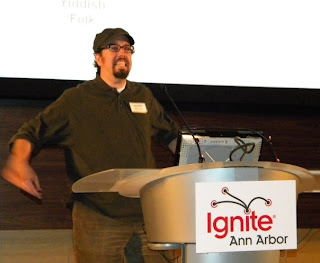According to Wikipedia:
Piyut.org's goal is "to give the widest possible view into the world of piyut from the distant past until today" and inclucdes some more colorful descriptions of piyut including:A piyyut (plural piyyutim, Hebrew פיוט, IPA: [pijút] and [pijutím]) is a Jewish liturgical poem, usually designated to be sung, chanted, or recited during religious services...For example, the best-known piyyut may be Adon Olam ("Master of the World")...Another well-beloved piyyut is Yigdal ("May God be Hallowed")
The site has text and audio recordings of hundreds of piyut, often with the same piyut recorded by artists from more than one musical tradition. Unfortunately for me the text is in Hebrew, which I can recite but can't really read. I'll just have to enjoy the music.The piyut decorates the prayers, the life cycle and the yearly cycle, every place where the sigh of the heart overpowers the mind. When words do not suffice and the melody is called for; and where that which is fixed yields its place to that which is renewed.
Avigdor Shinan
A definition that I heard from a man who was sitting outside a corner store on Becher street and saw me looking at an notice inviting the public to sing the songs of supplication at the Addes synagogue: "You should know" he said "Piyutim are the sweetness of the Torah"
Uri Kroizer











